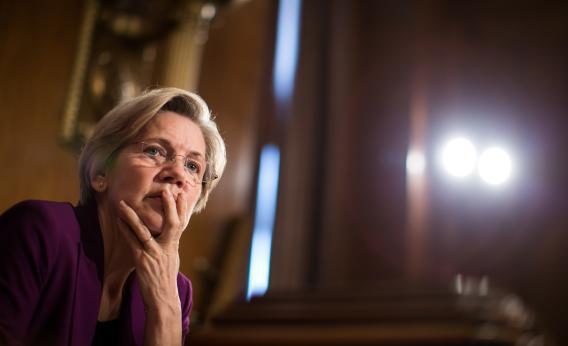Yesterday, new Senators Elizabeth Warren and Angus King teamed up with longtime advocates of this change Maria Cantwell and John McCain to introduce legislation that would “reinstate Glass-Steagall” and essentially force companies to do either commercial banking (like Washington Mutual) or investment banking (like Lehman Brothers). This is an idea that somewhat inexplicably has come to play an iconic role in bank regulation debates, with advocacy of a new Glass-Steagall a kind of critical signpost of one’s determination to crack down on the big banks.
But it’s a strange signpost to pick. In the thirty years between the mid-1970s and the mid-2000s there were a lot of changes to bank regulation in the United States and I think it’s obvious that the broad deregulatory impulse went too far. But it’s very difficult to see that the particular deregulatory change at issue here was responsible for much of anything at all. After all, I didn’t pick WaMu and Lehman as my examples by accident. Both of those are examples of the kind of “pure” financial institutions that were permitted under the Glass-Steagall regime and they both engaged in disastrous conduct during the crisis years and are no longer with us.
Rather than trying to connect the specific dots between allowing Citigroup and JP Morgan Chase to become financial supermarkets and the crisis, proponents tend to appeal to the general idea that the biggest banks are too big and too powerful and need to be cut down to size.
That’s fair enough and in many ways I would say that “passing this law will annoy Jamie Dimon” is a sufficient reason to do it. But it is worth emphasizing that Goldman Sachs is not a financial institution that lacks political influence, and it’s basically a pure play investment bank that would be untouched by a new Glass-Steagall regime.
On the other hand, it’s very hard to say what harm would be done to the American economy by re-dividing these functions. The main advantage of becoming a financial supermarket is that you can cross-market your services. You open a bank account with Chase, and now JP Morgan Chase has a relationship with you and also access about your financial situation. That means that if JP Morgan Chase is allowed to offer you a more sophisticated array of financial services, they have a marketing edge over other possible providers. This is a real reason for shareholders to be sad about the prospect of splitting the bank up. But I think it’s hard to make the case here that the loss to the American economy as a whole would be in any way important.
Which is to say that I’m extremely skeptical this change would make a difference one way or another except to damage the personal financial interests of a handful of bank executives (but, again, not all bank executives—Wells Fargo and Goldman Sachs would be fine) and large shareholders. Under the circumstances, I wouldn’t begrudge any member of congress their right to signal hostility to lax banking regulation by signing on as a cosponsor, but I’d hate to see legislators actually devoting a large amount of time to the cause.
